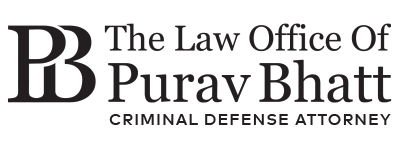Illinois state courts handle the bulk of criminal prosecutions in Chicago, however, the federal charges are brought in for activities that happen across state lines, like drug trafficking, or for crimes such as mail and wire fraud. Certain offenses, such as bank robberies, are also considered federal crimes, no matter where they occur. It’s possible for some crimes to be prosecuted at both the state and federal level.
The moment you are accused of a federal crime, the stakes immediately turn high. You are no longer dealing with just the state laws – you are up against the US federal government that has vast resources at its disposal to prosecute. As a result, their sentences carry much more weight.
👉Also Read: Defending Your Rights: Criminal Defense Attorneys Tackle Retail Theft Cases in Chicago
What Are Federal Criminal Cases?
The US legal system is structured into two primary levels: federal and state. Each has its own set of laws and courts. The difference between federal and state crimes is mainly about who makes the laws that are broken and who prosecutes the cases.
Simply put, federal crimes are violations of laws made by the federal government. They are crimes that cross state boundaries or that happen on federal property. For instance, if you commit a crime in a national park (federal property) or if you traffic drugs across state lines, you are breaking federal law. Here are some of the crimes that result in federal charges:
- Counterfeiting: Producing fake money or altering genuine currency.
- Drug Trafficking: Illegally manufacturing, distributing, or selling controlled substances across state lines or international borders.
- Bank Robbery: Robbing a bank that’s federally insured.
- Kidnapping: Especially if the victim is taken across state lines.
- Mail Fraud: Using the US Postal Service or private interstate carriers to commit fraud.
- Tax Evasion: Deliberately failing to pay federal taxes.
- Immigration Violations: Illegal entry into the US, smuggling non-citizens, or other violations of immigration law.
- Child Pornography: Producing, distributing, or possessing child pornography, particularly when it involves the internet or crosses state lines.
- Terrorism: Acts that are intended to intimidate or coerce a civilian population or influence government policy through intimidation or coercion.
- Securities Fraud: Deceptive practices in the stock and commodities markets, like insider trading.
- Computer Crimes: Hacking or distributing malware that affects interstate commerce or government computers.
- Espionage: Spying on behalf of a foreign government.
- Arms Trafficking: Illegal trade or smuggling of firearms across national borders.
- Money Laundering: Concealing the origins of illegally obtained money, by means of transfers involving foreign banks or legitimate businesses.
- Interstate Domestic Violence: Committing or threatening acts of violence against an intimate partner or family member, where the offender travels across state lines or the victim is forced to travel.
Some of these crimes might also be prosecuted under state laws, depending on the circumstances of the case. But assume that if a crime has occurred in different states, involves federal property or officers, affects interstate commerce, or violates specific federal laws, the federal government, i.e., any of the following federal law enforcement agencies, will get involved and your case will be tried in a federal court:
- Federal Bureau of Investigation (FBI)
- Drug Enforcement Administration (DEA)
- Bureau of Alcohol, Tobacco, Firearms and Explosives (ATF)
- Internal Revenue Service Criminal Investigation Division (IRS-CI)
- US Marshals Service
- Homeland Security Investigations (HSI)
- United States Secret Service
- Federal Deposit Insurance Corporation (FDIC) Office of Inspector General
- Environmental Protection Agency (EPA) Criminal Enforcement Program
- Securities and Exchange Commission (SEC)
- US Postal Inspection Service
- National Park Service Rangers
- US Fish and Wildlife Service Office of Law Enforcement
- Cybersecurity and Infrastructure Security Agency (CISA)
These agencies not only investigate but also work closely with the Department of Justice (DOJ) and US Attorneys’ offices across the country to prosecute federal crimes. The DOJ is the primary federal agency responsible for the prosecution of federal criminal offenses.
👉Also Read: Don’t Let a Criminal Conviction Define You: Seek Help From Chicago’s Top Defense Attorneys
What is the Double Jeopardy
The Double Jeopardy Clause in the Fifth Amendment to the US Constitution protects you from being prosecuted twice for the same offense. This means you cannot face trial more than once for the same crime in the same jurisdiction. Once you are acquitted or convicted, you are free from the fear of being retried for the exact offense.
In relation to this, there is an exception to this: the dual sovereignty doctrine. It states that since state governments and the federal government are separate entities (sovereignties), both can prosecute the same individual for the same act without violating the Double Jeopardy Clause.
So, if you are facing federal criminal charges, the federal government can prosecute you regardless of whether the state of Illinois has also decided to press charges for the same act. If your actions violated federal law and also constituted a crime under Illinois law, both the federal and Illinois governments could prosecute you separately. This doesn’t necessarily mean double punishment. Each court system would handle your case independently, with its own set of rules and potential sentences. Moreover, a conviction in one court could potentially influence the proceedings in the other.
Frequently Asked Questions
What is the punishment for a federal crime?
It will depend on the nature and severity of the federal offense; whether it is a white-collar crime (like fraud) or something more grave like terrorism. Most federal crimes result in incarceration, the duration of which can range from months or a few years for white-collar or lesser offenses, to life imprisonment for more serious crimes. Your criminal history as well as the federal sentencing guidelines will also be a factor.
How can I protect myself during a federal investigation?
You have the right to remain silent and the right to an attorney. The Fifth Amendment protects you from self-incrimination, so you don’t have to answer questions that could incriminate you. That said, make sure you don’t interfere with the investigation – if you are found destroying evidence, influencing witnesses, or lying to investigators, you can be charged with obstructing justice.
The best step you can take now is to retain a federal criminal defense lawyer who has experience with investigations so they can guide you through the entire process. Know that all your communications are likely to be monitored so avoid discussing the investigation with anyone other than your attorney.
What should I do if the FBI or any other federal agency shows up at my place?
First of all, politely ask the agents for their identification and business cards. You have the right to know who is at your door and the agency they represent. It’s a good idea to write down their names and badge numbers. Then ask them why they are there: are they conducting a search? Do they have a warrant? If they are there to ask questions, remember that you are not obligated to answer without your criminal defense lawyers present.
If they are there to search your home or office, they must have a valid search warrant signed by a judge and should specify the areas to be searched and the items they are authorized to seize. Review the warrant carefully but do not obstruct them. If they don’t have a warrant, you can refuse to allow them in.
Can I get a bail in federal courts?
Yes, if you are arrested, you are entitled to a bail hearing or detention hearing to determine whether you can be released on bail pending trial. But if the alleged crime is severe/violent, the evidence against you is strong, you have a long criminal history, or the federal court system believes you are a flight risk, getting bail would not be easy.
Can I appeal a federal criminal conviction?
Yes, you can. You will have to file a Notice of Appeal within a strict time frame, usually within 14 days after the judgment you are appealing has been entered on the district court’s docket. Keep in mind that an appeal is NOT a re-trial. You can only request it if you can prove that there were any legal errors made during your trial or sentencing. For example, maybe the judge made an incorrect ruling; key evidence was excluded or not admitted properly; the sentence was improperly calculated or violated legal standards, and so on.
What is a grand jury?
Unlike a regular (petit) jury in a trial, which determines guilt or innocence, a grand jury carries out investigative functions. A federal grand jury consists of 16 to 23 members, who are selected from the same pool as trial jurors. Their sole purpose is to review evidence presented by the prosecutor to decide if there is probable cause to believe a crime has been committed. As such, these jury proceedings are conducted in secret.
Generally speaking, there is no judge present in the room where the grand jury meets, and the standard rules of evidence do not apply. Additionally, the person being investigated does not have the right to present their case, nor are they or their attorney present (except in certain circumstances when a witness is also the target of the investigation). The prosecutor presents the evidence, calls witnesses, and may suggest charges.
If the grand jury finds probable cause, it issues an indictment, formally charging the individual with a crime. If the grand jury does not find enough evidence, it returns a “no bill,” and no charges are filed. Before an indictment is issued, your attorney may negotiate with the prosecutor to get the charges reduced or dismissed altogether, depending on the strength of your case and other factors.
Contact Experienced Federal Defense Attorneys at The Law Office of Purav Bhatt
When you are facing a federal charge, your attorney’s understanding of the Federal Rules of Criminal Procedure is key. Purav Bhatt has been in the trenches of Chicago’s legal system for over ten years. His background as a prosecutor gives him an edge — he understands both sides of the courtroom. He knows how federal prosecutors think and plan their strategies, and he uses this insight to anticipate their moves and build a stronger defense for you.
He will stand by your side throughout it all: the initial complaint, the grand jury indictment, arraignment, right up to the trial, focusing on proving your innocence. Should a conviction occur, federal defense attorney Purav leverages his knowledge of the US. Sentencing Guidelines to ensure the judge considers all factors that could lessen your sentence. He will point out if you are a first-time offender and may bring up reasons like acting under duress, self-defense, not being the main instigator in the crime or lack of harm from the crime.
If you suspect you are being investigated for a federal crime, call us today at 773-791-9682 or contact us online to set up an appointment.


